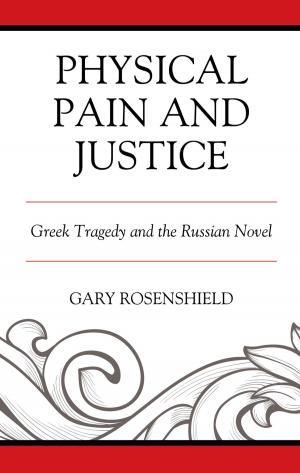The Ethical Detective
Moral Philosophy and Detective Fiction
Nonfiction, Religion & Spirituality, Philosophy, Ethics & Moral Philosophy| Author: | Rachel Haliburton | ISBN: | 9781498536813 |
| Publisher: | Lexington Books | Publication: | February 28, 2018 |
| Imprint: | Lexington Books | Language: | English |
| Author: | Rachel Haliburton |
| ISBN: | 9781498536813 |
| Publisher: | Lexington Books |
| Publication: | February 28, 2018 |
| Imprint: | Lexington Books |
| Language: | English |
Detective fiction and philosophy¾moral philosophy in particular¾may seem like an odd combination. Working within the framework offered by neo-Aristotelian virtue ethics, this book makes the case that moral philosophers ought to take murder mysteries seriously, seeing them as a source of ethical insight, and as a tool that can be used to spark the ethical imagination. Detective fiction is a literary genre that asks readers to consider questions of good and evil, justice and injustice, virtue and vice, and is, consequently, a profoundly and inescapably ethical genre. Moreover, in the figure of the detective, readers are presented with an accessible role model who demonstrates the virtues of honesty, courage, and a commitment to justice that are required by those who want to live well as a virtue ethicist would understand it. This book also offers a critique of contemporary moral philosophy, and considers what features a neo-Aristotelian conception of autonomy might display.
Detective fiction and philosophy¾moral philosophy in particular¾may seem like an odd combination. Working within the framework offered by neo-Aristotelian virtue ethics, this book makes the case that moral philosophers ought to take murder mysteries seriously, seeing them as a source of ethical insight, and as a tool that can be used to spark the ethical imagination. Detective fiction is a literary genre that asks readers to consider questions of good and evil, justice and injustice, virtue and vice, and is, consequently, a profoundly and inescapably ethical genre. Moreover, in the figure of the detective, readers are presented with an accessible role model who demonstrates the virtues of honesty, courage, and a commitment to justice that are required by those who want to live well as a virtue ethicist would understand it. This book also offers a critique of contemporary moral philosophy, and considers what features a neo-Aristotelian conception of autonomy might display.















